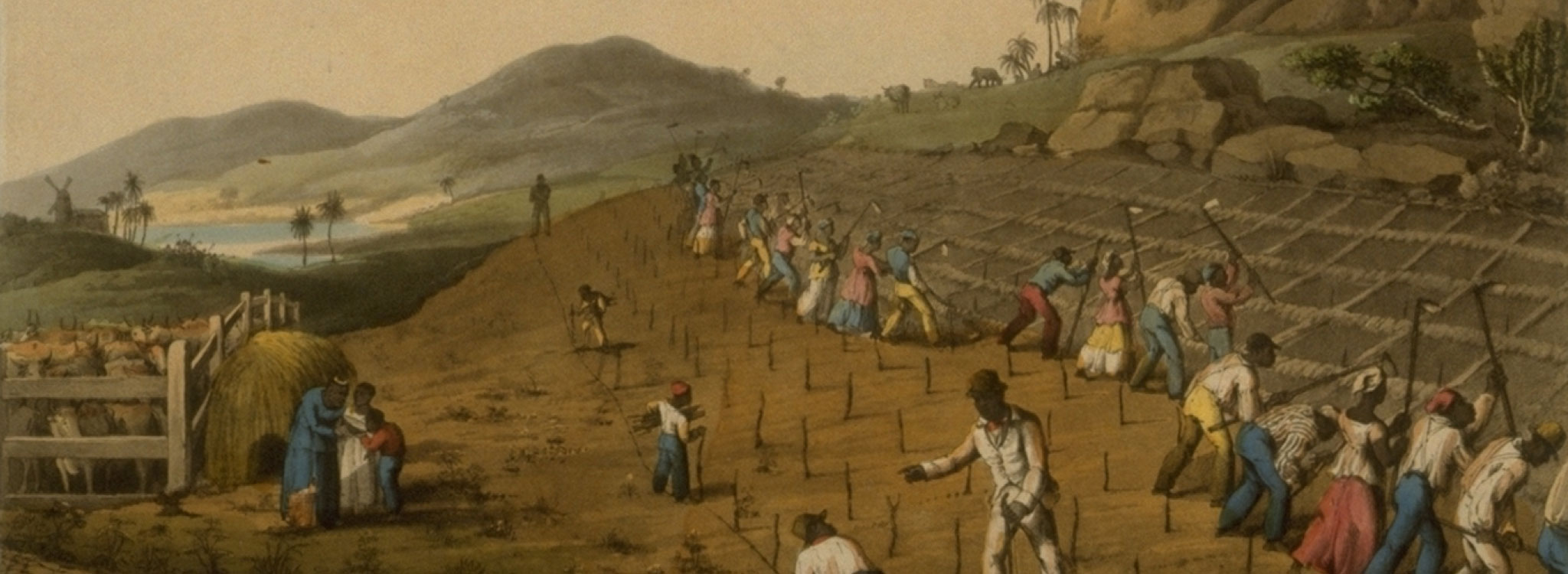Nicolas Mongoula was a prominent free black man in eighteenth century Mobile, Alabama. He was a mason, militia captain, and property owner. According to his burial record, Mongoula was born in 1720. There are records of two children named Nicolas born to enslaved black mothers in Mobile that year, but it is impossible to know whether Mongoula was one of these two. At the time of his birth, Mobile was a part of the French colony of Louisiana. Mongoula’s last name meant “my friend” in Mobilian Jargon, a pidgin language used throughout the region that combined aspects of several different Native American languages.
Many different Native American groups used Mobilian Jargon to communicate and trade with each other, and there were some Africans and Europeans who learned the language in order to communicate with Native Americans in the area. During Mobile’s French period, Native American and African slavery both existed, especially during the 1720s, the decade of Mongoula’s birth. About half of Mobile’s households owned slaves, and usually had both African and Native American slaves. Because they often lived and worked together, African and Native American slaves developed sexual relationships, married, and served as godparents to each other’s children. These relationships continued after the acquisition of Mobile by the British following the close of the French and Indian War in 1763.
During the American Revolution, Mobile became a part of Spanish West Florida, where it would remain until after Mongoula’s death. The Spanish abolished Native American slavery in Florida in 1780, but the close relationship between African-born or descended people and Native Americans continued. Mongoula may have been familiar with Mobilian Jargon through these relationships, but it is impossible to know.
Mongoula became a prominent free person of color in Spanish Mobile. Three different Catholic baptisms in Mobile between 1764 and 1781 record Mongoula as the godfather to enslaved Africans. Because he was free and owned property, Mongoula was a popular godfather. Spanish records describe him as a “master mason,” and historians speculate he may have built the house that he sold to a man named Hugh Krebs in 1792. He was also commissioned by the Spanish government as the captain of a local militia composed of free people of color in case of an attack on Mobile.
Historical records shed little light on Mongoula’s life. He married a free black woman named Francisco Mimi, a marriage recorded in the records of Mobile’s Catholic Church. They had at least two children, Santiago and Luisa. Records show Santiago was employed as a carpenter in New Orleans in the 1790s, and as a non-commissioned officer in New Orleans’ free black militia. Luisa’s life is also mostly unknown, though she was unmarried and living in Mobile at the time of her father’s death in 1798.
On April 1, 1798, Nicolas Mongoula dictated his last will and testament. His wife was to gain their possessions: their land and a cabin in Mobile, ten or twelve heads of cattle, and land by St. Stephens Creek, where they had grown rice, corn, and beans. Mongoula died a month later, on May 2, 1798. He received a Catholic burial with full rites in Mobile’s parish church. During Mongoula’s life, Mobile was a part of French Louisiana, British West Florida, and then finally Spanish West Florida. Fifteen years after his death, in 1813, the United States captured Mobile during the War of 1812.
Read the full, original biography by David Wheat in the African American National Biography
Bibliography
Drechsel, Emanuel J. Mobilian Jargon: Linguistic and Sociohistorical Aspects of a Native American Pidgin. Oxford: Clarendon Press, 1997.
Hanger, Kimberly S. Bounded Lives, Bounded Places: Free Black Society in Colonial New Orleans, 1769-1803. Durham: Duke University Press, 1997.
Landers, Jane. Black Society in Spanish Florida. Urbana: University of Illinois Press, 1999.
Usner, Daniel H., Jr. Indians, Settlers & Slaves in a Frontier Exchange Economy: The Lower Mississippi Valley before 1783. Chapel Hill: Published for the Institute of Early American History and Culture by the University of North Carolina Press,1992.
Wheat, David. "Mongoula, Nicolas." African American National Biography, edited by Ed. Henry Louis Gates Jr.. , edited by and Evelyn Brooks Higginbotham. . Oxford African American Studies Center, http://www.oxfordaasc.com/article/opr/t0001/e3381 (accessed Thu Sep 05 10:59:02 EDT 2019).
Wheat, David. “My Friend Nicolas Mongoula: Africans, Indians, and Cultural Exchange in Eighteenth-Century Mobile,” in Coastal Encounters: The Transformation of the Gulf South in the Eighteenth Century. Edited by Richmond F. Brown. Lincoln: University of Nebraska Press, 2007: 117-31.
Author
David Wheat
Adapted by
David Glovsky and Steven J. Niven
Contributing Institutions
Hutchins Center for African & African American Research, Harvard University, Cambridge, MA.
Oxford University Press (USA) African American Studies Center.





